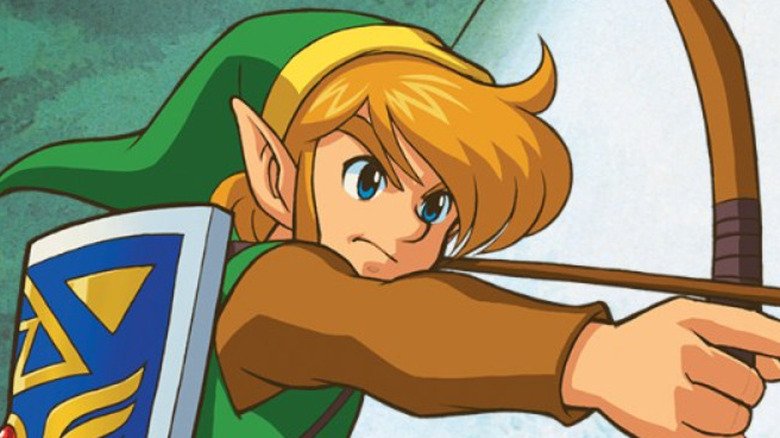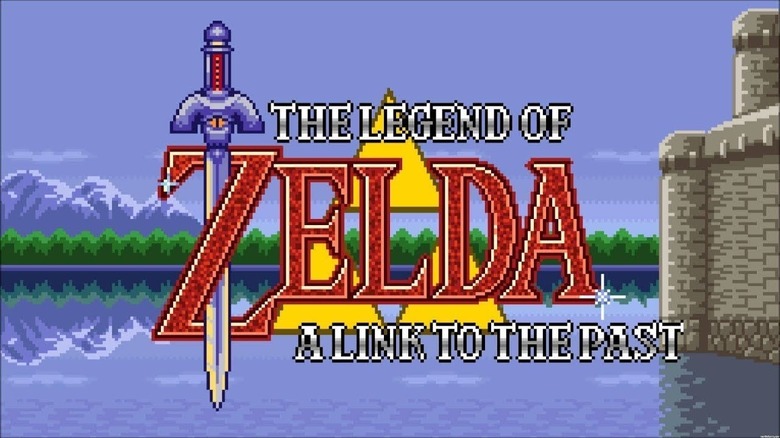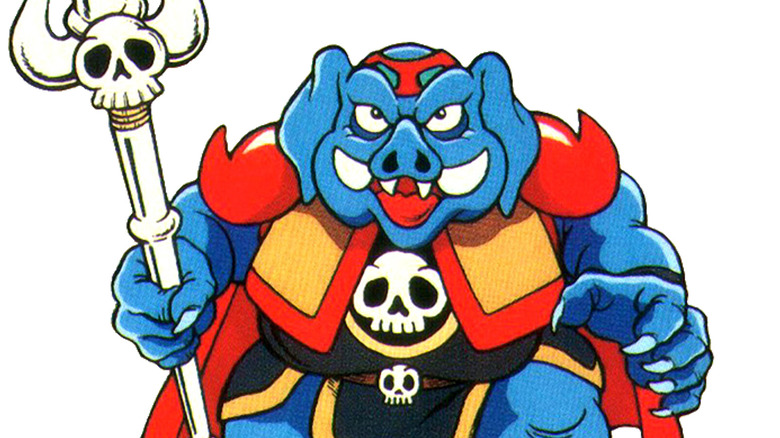The Legend Of Zelda: A Link To The Past Almost Had Many Different Names
There are few games in the classic "Zelda" catalogue that are as revered as "A Link To The Past," the third game in the series, and the first to incorporate iconic elements like the Master Sword and travel between parallel dimensions. It was a huge success and a marked improvement over the side-scroller "Zelda 2: The Adventure of Link," in part because it was a return to the top-down original gameplay style of the first "Zelda" game. It set a standard for all future "Zelda" titles to come.
Despite being one of the most well-regarded "Zelda" entries, though, the full story of how "A Link to the Past" was developed has long been shrouded in the fog of time — but now, thanks to the efforts of Japanese translator Shmuplations, we know a little bit more about the Super Nintendo's iconic "Zelda" game.
In recent years, translators in the gaming community have begun to dig into old industry media to uncover secrets lost to language differences and time. The translated 1992 interview with Shigeru Miyamoto was originally published in Japanese-language Famicom Tsuushin magazine — now Famitsu. As part of his anecdotes on the development of the third "Zelda" game, Miyamoto talked about things that never made it into the game — including alternate titles that were considered before "A Link to the Past" was ultimately chosen.
A translated interview from 1992 uncovers secrets behind A Link To The Past's development
When the interview was published at the beginning of the year in 1992, "A Link to the Past" had not been released yet in the West — in Japan, it released November 21, 1991, but the interview likely took place before then. According to Shmuplations' translation, Shigeru Miyamoto responded primarily to questions about the development cycle of "A Link to the Past" and what fans could expect from the third "Zelda" game.
The Super Nintendo had been out for a few years by the time "A Link to the Past" hit the shelves, but Miyamoto said that it was originally planned to be one of the few launch games for the SNES. Miyamoto called the first game inadequate thanks to hardware constraints, and the heightened power of the Super Nintendo — or Super Famicom in Japan — opened up doors for developers to try these ideas out. He said the team was originally very small, to flesh out the project and give it direction.
As "A Link to the Past" took shape and more work needed to be done, the team working on what was internally called "SFC (Super Famicom) Zelda" expanded. It wasn't just an informal nickname, though, as Miyamoto said that "Super Famicom Zelda" was one of the options being seriously considered for the game's official title. Two other alternate titles that were under consideration were "Ganon's Revenge" and "New Zelda."
Alternate titles included Super Famicom Legend of Zelda, Ganon's Revenge, and New Zelda
Though it might sound silly now, it's not out of the ordinary for Nintendo to name a new game after the console it came out on. It's really common in the "Mario" franchise — "Super Mario 64," "Mario Kart Wii," and "New Super Mario Bros. U" are just a few examples — but rarely is that naming convention applied to other Nintendo properties. "A Link to the Past" was apparently originally going to be called "Super Famicom Legend of Zelda," perhaps "Super Nintendo Legend of Zelda" in the West, but because of delays, it didn't end up being available when the console launched. Thus, this title was scrapped.
Another alternative title Miyamoto listed was "Ganon's Revenge," which would have made some amount of sense. He didn't give any specifics on why this title was scrapped, but it might have had to do with the feelings it evokes. "A Link to the Past" sounds enchanting while "Ganon's Revenge" sounds a bit darker. The interviewer said that it was called "New Legend of Zelda" for a long time, to which Miyamoto implied that it was a kind of working title. Later on, he expressed that while thought players would understand that "New Zelda" is a separate game from the original, advertisers and wholesalers might not.
Whatever the case was for Nintendo scrapping these alternate titles, ultimately the team went with "A Link to the Past," and we got one of the best games in the series. One can only wonder how "Zelda" might have transformed if one of these alternate titles was used instead.



